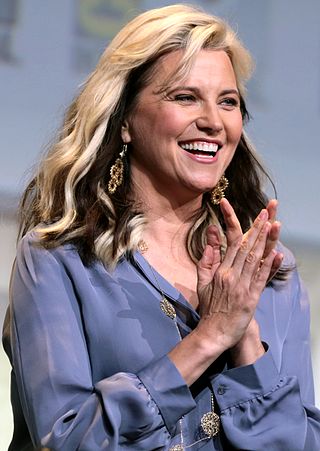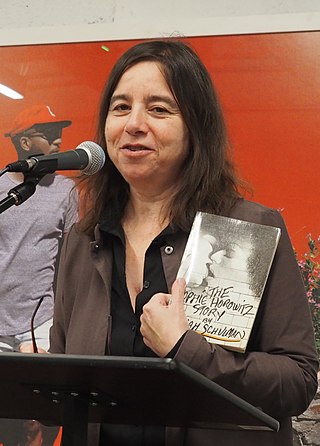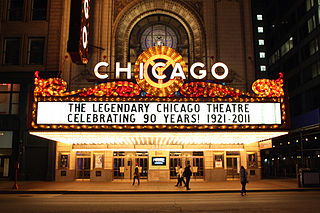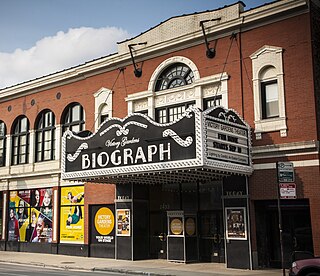
Lucille Frances Lawless is a New Zealand actress. She is best known for her roles as Xena in the television series Xena: Warrior Princess, as D'Anna Biers on the re-imagined Battlestar Galactica series, and Lucretia in the television series Spartacus: Blood and Sand and associated series. Since 2019, she has starred as Alexa in the television series My Life Is Murder.
Judy Grahn is an American poet and author.

Lorraine Vivian Hansberry was an American playwright and writer. She was the first African-American female author to have a play performed on Broadway. Her best-known work, the play A Raisin in the Sun, highlights the lives of black Americans in Chicago living under racial segregation. The title of the play was taken from the poem "Harlem" by Langston Hughes: "What happens to a dream deferred? Does it dry up like a raisin in the sun?" At the age of 29, she won the New York Drama Critics' Circle Award — making her the first African-American dramatist, the fifth woman, and the youngest playwright to do so. Hansberry's family had struggled against segregation, challenging a restrictive covenant in the 1940 U.S. Supreme Court case Hansberry v. Lee.

Sharon Marguerite Gless is an American actress known for her television roles. She portrayed Maggie Philbin on Switch (1975–78), Sgt. Christine Cagney in the police procedural drama series Cagney & Lacey (1982–88), and played the title role in The Trials of Rosie O'Neill (1990–92). She was Debbie Novotny in the Showtime cable television series Queer as Folk (2000–2005) and Madeline Westen on Burn Notice (2007–2013).
Achy Obejas is a Cuban-American writer and translator focused on personal and national identity issues, living in Benicia, California. She frequently writes on her sexuality and nationality, and has received numerous awards for her creative work. Obejas' stories and poems have appeared in Prairie Schooner, Fifth Wednesday Journal, TriQuarterly, Another Chicago Magazine and many other publications. Some of her work was originally published in Esto no tiene nombre, a Latina lesbian magazine published and edited by tatiana de la tierra, which gave voice to the Latina lesbian community. Obejas worked as a journalist in Chicago for more than two decades. For several years, she was also a writer in residence at the University of Chicago, University of Hawaii, DePaul University, Wichita State University, and Mills College in Oakland, California. She also worked from 2019 to 2022 as a writer/editor for Netflix on the bilingual team in the Product Writing department.

Cherríe Moraga is a Xicana feminist, writer, activist, poet, essayist, and playwright. She is part of the faculty at the University of California, Santa Barbara in the Department of English since 2017, and in 2022 became a distinguished professor. Moraga is also a founding member of the social justice activist group La Red Xicana Indígena, which is network fighting for education, culture rights, and Indigenous Rights. In 2017, she co-founded, with Celia Herrera Rodríguez, Las Maestras Center for Xicana Indigenous Thought, Art, and Social Practice, located on the campus of UC Santa Barbara.

Sarah Miriam Schulman is an American novelist, playwright, nonfiction writer, screenwriter, gay activist, and AIDS historian. She holds an endowed chair in nonfiction at Northwestern University and is a fellow of the New York Institute for the Humanities. She is a recipient of the Bill Whitehead Award and the Lambda Literary Award.

Theater in Chicago describes not only theater performed in Chicago, Illinois, but also to the movement in Chicago that saw a number of small, meagerly funded companies grow to institutions of national and international significance. Chicago had long been a popular destination for touring productions, as well as original productions that transfer to Broadway and other cities. According to Variety editor Gordon Cox, beside New York City, Chicago has one of the most lively theater scenes in the United States. As many as 100 shows could be seen any given night from 200 companies as of 2018, some with national reputations and many in creative "storefront" theaters, demonstrating a vibrant theater scene "from the ground up". According to American Theatre magazine, Chicago's theater is "justly legendary".

Phyllis Nagy is an American theatre and film director, screenwriter and playwright. In 2006, Nagy was nominated for the Primetime Emmy Award for writing and directing Mrs. Harris (2005), her screen debut. In 2016, Nagy received an Academy Award nomination, among numerous other accolades, for Best Adapted Screenplay for the 2015 film Carol.

Victory Gardens Theater is a theater company in Chicago, Illinois dedicated to the development and production of new plays and playwrights. The theater company was founded in 1974 when eight Chicago artists, Cecil O'Neal, Warren Casey, Stuart Gordon, Cordis Heard, Roberta Maguire, Mac McGuinnes, June Pyskaček, and David Rasche each fronted $1,000 to start a company outside the Chicago Loop and Gordon donated the light board of his Organic Theater Company. The theater's first production, The Velvet Rose, by Stacy Myatt, premiered on October 9, 1974.
Ana María Simo is a New York playwright, essayist and novelist. Born in Cuba, educated in France, and writing in English, she has collaborated with such experimental artists as composer Zeena Parkins, choreographer Stephanie Skura and filmmakers Ela Troyano and Abigail Child.

Samiya A. Bashir is a queer American artist, poet, and author. Much of Bashir's poetry explores the intersections of culture, change, and identity through the lens of race, gender, the body and sexuality. She is currently the June Jordan visiting professor at Columbia University of New York. Bashir is the first black woman recipient of the Joseph Brodsky Rome Prize in Literature. She was also the third black woman to serve as tenured professor at Reed College in Portland, Oregon.

Hannah Free is a 2009 American lesbian romance film, adapted from Claudia Allen's play of the same name and starring Sharon Gless, Maureen Gallagher, Kelli Strickland, Ann Hagemann, Taylor Miller, and Jax Jackson.
Kate Goehring is an American stage, film and television actress.
Marie Jayne Kuda (1940–2016) was an American writer, lecturer, publisher, and historian of LGBT culture in Chicago. Her collection contained over 100,000 documents and ephemera and her research extended to LGBT culture from ancient times through the 20th century. She was the founder of Womanpress, published the first annotated bibliography of lesbian literature, Women Loving Women, and organized five Lesbian Writers' Conferences in Chicago.
Charles Smith is a playwright and educator based in the Midwestern United States. He is known for his works staged at Victory Gardens Theater, and his teleplays on WMAQ-TV. He is the head of the Professional Playwriting Program at Ohio University.

Ike Holter is an American playwright. He won a Windham–Campbell Literature Prize for drama in 2017. Holter is a resident playwright at Victory Gardens Theater, and has been commissioned by The Kennedy Center, The Eugene O'Neill Theater Center, South Coast Repertory and The Playwrights' Center.

Lavender Woman was a lesbian periodical produced in Chicago, Illinois, from 1971 to 1976. The name Lavender Woman comes from the color lavender's prominence as a representation of homosexuality, starting in the 1950s and 1960s. It is believed that the color became a symbol due to it being a product of mixing baby blue and pink. Lavender truly hit the spotlight as a symbol of homosexuality empowerment in 1969 when lavender sashes and armbands were distributed during a "gay power" march in New York.












